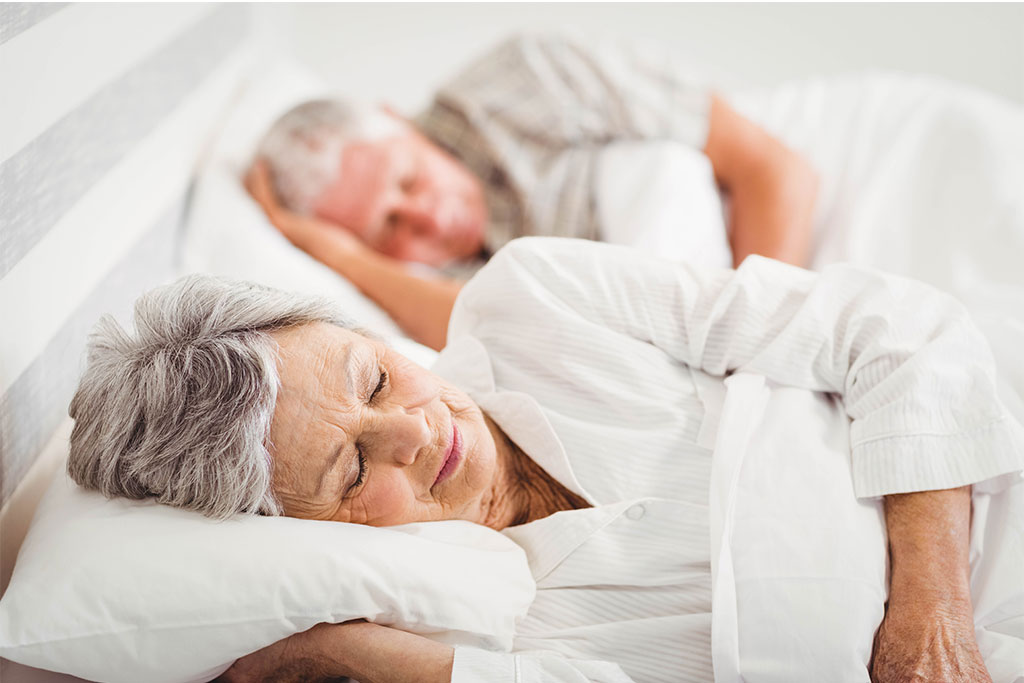Getting enough sleep is important to keep yourself healthy. This is especially true for seniors. Your loved ones with sleep deprivation may experience trouble concentrating and have a weaker immune system. They are also at an increased risk of developing a range of physical and mental illnesses. Not to mention, being tired may lead to accidents such as falls. The good news is that disruptive sleeping habits and insomnia are not associated with aging, so it is possible for seniors to get better sleep! Learn more about how your loved ones can get better sleep by following these five easy steps.
Identify the Cause of Sleep Problems
Sometimes, sleeping problems may be due to more than just bad habits. Underlying health conditions like heart and lung issues, Alzheimer’s disease or even Parkinson’s can affect the quality of sleep that seniors get. Additionally, the medications that your loved one takes may also cause insomnia. This is very likely as about 40% of seniors aged above 64 take minimally five different types of prescription drugs. The wide variety of possible factors is what makes it important to get the help of health professionals. With their expertise, your loved ones can identify the root cause of their sleeplessness and fix it.
Eat Healthily and Exercise Regularly
If medical conditions are not the cause of your loved one’s sleeping problems, it may be due to his or her unhealthy lifestyle habits. A sedentary lifestyle can disrupt one’s sleeping habits. To avoid this, your loved ones should get regular exercise and be physically active. Studies have found that exercise not only affects overall wellness but also the quality of sleep. During exercise, the body releases adrenaline, which boosts energy levels. However, when adrenaline levels decrease, the brain responds by signaling the body that is time to rest and sleep. At the same time, exercising regularly should be complemented by a healthy diet. Your loved ones should avoid added sugars and refined carbohydrates to get better sleep!
Having a Routine before Bed
The quality of sleep that a senior gets is also dependent on having a regular sleeping schedule. This means that your loved one should be falling asleep and waking at the same time every day. Seniors should aim to get minimally seven to nine hours of sleep per day. It is recommended that your loved ones go to bed between 7 to 9 pm and wake at 4 to 6 am. To maintain this schedule, they can set an alarm for the same time every day and avoid unnecessary changes to their sleeping time. Soon, having sufficient sleep and a relaxing night of rest will become a part of their daily lives.
Avoid Doing Activities That Prevent Sleep
Your loved ones should not engage in activities close to bedtime that can keep them awake. Some examples include having a heavy dinner and consuming sugar or caffeine late in the day. These are activities that stimulate their bodies and minds, making it more likely that they will not get a good sleep.
Set Up a Comfortable Sleeping Environment
The location where seniors sleep is another important factor to consider. Living in a comfortable environment means that your loved ones can wind down and be ready to sleep at bedtime. Quiet and dimly-lit places at moderate temperatures are usually conducive for sleeping. Your loved ones can also get more comfortable by engaging in relaxing activities beforehand. Reading, meditating, or just avoiding gadgets before bed can make going to sleep much easier.







